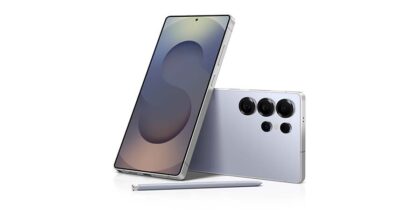When it comes to technology, small businesses can’t afford to trail the pack. In a recent Gartner survey, only 35 percent of the 699 small- to mid-sized business owners polled indicated that keeping up with technology is a concern. But as analyst Anthony Bradley points out, only technology can save the small business sector and enable small businesses to compete with large enterprises.
The truth is, business operators face high expectations from customers, who want their in-person experience to be as satisfying as their online transactions. They need their questions answered immediately, and they want to find goods and/or service representatives quickly and choose from payment options that are fast and flexible.
Meanwhile, employees increasingly must be able to untether themselves from their desks and have rapid access to the information they need to answer customer and prospect questions. To meet these expectations, small businesses must embrace mobile as their future technology. As 2019 approaches, here is the essential technology that businesses need to consider including in their strategies.
Wearable Devices
Many people have adopted wearables in their personal lives to track activity and exercise and to make technology more portable. The same technology is rapidly expanded into business sectors, such as trades. For example, when a repair technician is elbow-deep in a customer’s air conditioning unit and needs a part, a smartwatch enables them to receive alerts, report on job status, and check inventory.
Unlock the Power of Mobility for Small Business
Get your free guide to improving security and enhancing productivity with unlocked smartphones. Download Now
Wearable devices can provide access to business applications in a way that supports business goals. Luxury hotels, for example, equip staff such as bellmen and valets with smartwatches so they can receive and acknowledge alerts without having to pull a phone from their pocket. Not only do staff members receive alerts quickly in a user-friendly form, but the hotel avoids the risk that guests will mistakenly think staff members are swiping through Instagram on their phones while on duty. Devices on the market today leverage a marketplace of apps that businesses may already be using on smartphones.
Machine Learning
Machine learning is widely viewed as an enterprise technology, but it can also benefit smaller businesses that generate sufficient data flows. These analytics, in turn, help the business better anticipate trends and react to data that is suggestive of consumer intentions. Any business that generates significant data would do well to look into out-of-the box machine learning tools that might improve agility and responsiveness.
Machine learning can analyze data streams to detect patterns such as increases in engagement or changes in demand for particular products and services. Businesses get better at identifying loyal customers, recognizing upsell/cross-sell opportunities, and personalizing online interactions. For example, you could use data from your email marketing system to learn how often the customer opens your email, data from payment systems for how often they’ve shopped with you and information from Yelp on whether or not they’ve left a review.
Chatbots
Conversational user interfaces (CUI), such as chatbots, can leverage machine learning and artificial intelligence to get better at helping customers find answers such as, “Where is my order?” According to “The Chatbot Consumer Report,” 80 percent of companies plan to have chatbots in place by 2020. Chatbots can augment live chat operations by answering the simple questions first with the option to escalate to a customer service representative for more complex questions.
Chatbot performance is a continuous challenge. The Chatbot Consumer Report states that 71 percent of respondents cannot get the answer they seek from the chatbot. Machine learning algorithms can help train your chatbots to understand natural language queries and retrieve the right information, so before adding one to your customer service arsenal, make sure the chatbot is designed to learn effectively.
Blockchain
You’ve heard of Bitcoin, the oldest application of blockchain. Beyond cryptocurrency, blockchain is a distributed ledger technology that uses individual computers to create records that are permanent and unalterable. Blockchain companies are creating ledgers that can verify employment applications and validate documents like contracts, essentially eliminating intermediaries. Blockchain can also create smart contracts that are embedded in code to automate transaction for speed and cost reduction.
According to research firm IDC, blockchain platform software is poised for dramatic growth. The financial services industry will spend the most on blockchain, and businesses in distribution, services and manufacturing sectors will also invest heavily, particularly for tracking and validating products across supply chains.
Small businesses can benefit by learning all they can about blockchain vendors now, as they will likely need to outsource building a blockchain application. Additionally, you’ll want to examine your processes to see which could be improved with blockchain.
Business Intelligence Tools
Thanks to cloud-based technology, even small businesses can derive valuable insights from their data. They can pull in data from financial systems and customer relationship management (CRM) systems, then run analytics to better understand their customers’ purchasing and payment patterns. It becomes a way to improve service and product offerings while anticipating demand.
Mobility
According to IDC, enterprise mobile spending is expected to reach over $1.7 trillion in 2021. It’s a given that small business owners will purchase mobile devices and mobility technology. By taking the lead and supplying company-owned mobile devices loaded with core applications, businesses can empower employees to succeed on the go while providing the phones and tablets that best match the needs of each role. Companies that aren’t ready to supply smartphones can enact a BYOD (bring your own device) policy in which the company manages personal devices via enterprise mobility management (EMM) software.
By preparing now and learning more about these essential technologies, your small business can gain a competitive edge. You’ll be able to provide better customer service, engage employees and improve productivity.
Learn how Samsung’s small business solutions can help you scale your growing business every step of the way.








